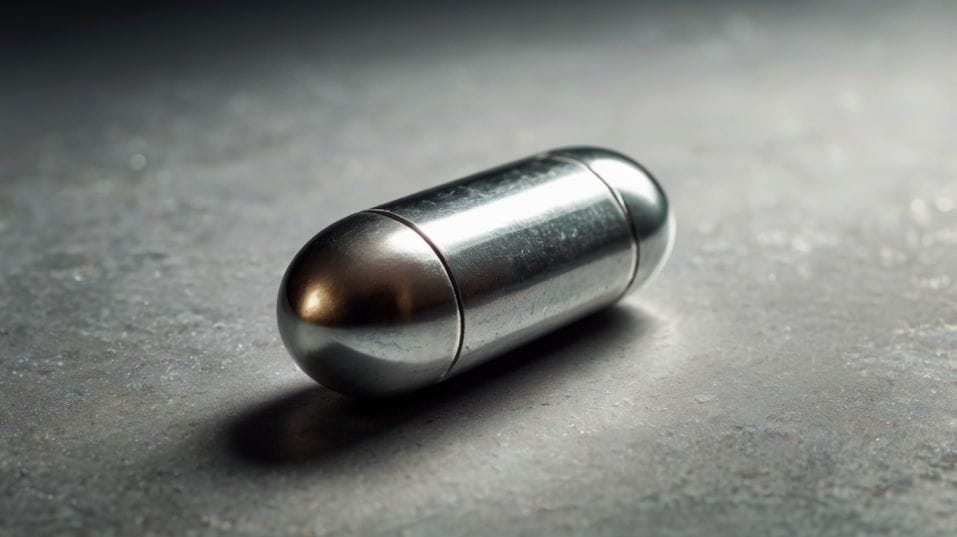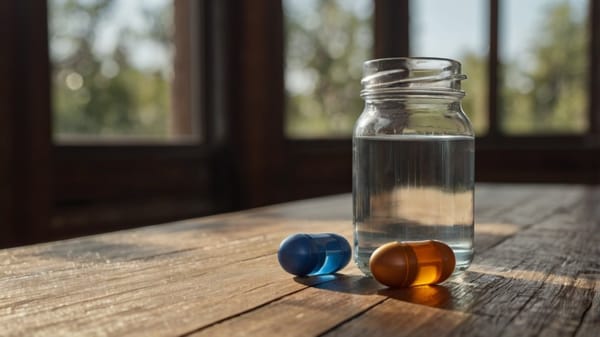The Real Reason People Swear by Zinc
Zinc does more than boost immunity—it supports energy, focus, recovery, and hormone balance. Here’s why it matters for daily performance.

Ever feel drained no matter how much you rest? Struggle to focus or shake off that sluggish, foggy feeling? The missing link might be zinc.
This underrated mineral powers everything from energy to brain health, yet most people don’t get enough—especially during times when absorption or demand increases.
It’s not hype. It’s a real fix hiding in plain sight. Here’s why so many people notice a serious upgrade after adding zinc to their routine—and why you might, too.
Zinc Does Way More Than You Think
Most people only hear about zinc when cold season rolls around. But zinc isn't just a one-trick pony for immunity.
It’s involved in over 300 enzyme reactions in your body—and that translates into real, noticeable benefits when levels are where they should be.
Here’s the short list of what zinc helps with:
- Energy production
- Immune strength
- Tissue repair
- Hormone regulation
- Wound healing
- Cognitive sharpness
- Mood balance

In other words, if your zinc is low, you’re running at half-capacity. And it won’t always scream at you. Sometimes it’s subtle: slower recovery, poor sleep, low drive, or that frustrating mental fog that creeps in during the afternoon.
When your body isn’t absorbing or storing zinc efficiently—even slightly low levels can throw things off.
Energy Without the Crash
Forget sugar, caffeine, or cheap energy shots. Zinc works at the cellular level, helping your mitochondria (your cells' power plants) churn out energy efficiently.
Low zinc? Your cells struggle to make enough ATP, the fuel your body uses for everything—moving, thinking, even digesting. That leads to the kind of fatigue that doesn’t go away with a nap or a walk.
When zinc levels are optimal, you get clean, sustainable energy. The kind that makes you want to get up, get things done, and still have something left in the tank for later.
Sharper Focus. Calmer Mood. More Clarity.
Zinc also plays a huge role in neurotransmitter function—especially GABA, dopamine, and serotonin. These brain chemicals impact how you think, feel, focus, and handle stress.
When your zinc is low, you’re more likely to feel:
- Mentally scattered or foggy
- Unmotivated or moody
- Easily irritated or anxious
But when your brain’s got the zinc it needs? You get clarity. Emotional steadiness. Focus that lasts longer than one cup of coffee.
That’s why so many people notice mental sharpness and even improved memory after just a few weeks of consistent zinc intake.
Better Recovery and Resilience
Zinc helps rebuild muscle tissue and supports hormone balance, especially testosterone and thyroid function—which are easily thrown off by stress, poor sleep, or intense physical demands.
This matters more than you might think:
- If you’re exercising regularly, zinc helps your body repair and grow stronger instead of just staying sore.
- If you’re not working out yet, zinc still helps restore physical resilience so you feel more like moving and less like dragging.
Plus, it shortens the time it takes to bounce back from everything—from a rough night’s sleep to a pulled muscle or even a stressful week.
Immunity That Actually Works
Yes, zinc does help with colds—but that’s just the tip of the iceberg.
Zinc supports your T-cells, which are your body’s front-line defenders against viruses, bacteria, and inflammation. Without enough zinc, those cells slow down, leaving you more vulnerable—not just to sickness, but to slower healing overall.
Getting zinc right doesn’t mean you’ll never get sick. But it does mean your body can fight back faster and recover more smoothly—especially when resilience starts to dip.
What to Take (And When)
The good news: you don’t need megadoses or complex stacks to get zinc right. A simple, high-quality supplement is usually all it takes to fill the gap.
Look for:
- Zinc Picolinate or Zinc Citrate – both are well-absorbed and easy on digestion.
- 15–30 mg per day – enough for daily needs, without overdoing it.
Take it with food, preferably in the morning. This helps absorption and avoids the minor nausea some people get when taking it on an empty stomach.
Bonus tip: Pair it with magnesium and vitamin B6 (you’ll often find all three in a “ZMA” blend) for better sleep, recovery, and mood support.
Why Most People Are Deficient (Without Knowing It)
Even with a decent diet, many people fall short on zinc. Why?
- Soil depletion – Modern farming strips zinc from crops.
- Absorption challenges – Your body can become less efficient at processing zinc due to stress, lifestyle, or nutrient interactions.
- Medications – Common prescriptions like PPIs and diuretics can deplete zinc.
- Low-protein diets – Zinc is abundant in meat and shellfish, less so in plants.
So even if you think you're eating well, there’s a good chance your body still isn’t getting—or holding onto—enough.
Final Thoughts: Start Now
Zinc isn’t trendy. It’s not flashy. But it works—and it works where it counts.
If you want better energy, clearer thinking, stronger immunity, and faster recovery, zinc should be part of your daily routine.
Especially if you’re starting to feel the slow creep of fatigue, forgetfulness, or low drive—despite doing all the right things.
Start now. One capsule a day. Big benefits. Give it 2–3 weeks, and you’ll feel the shift. You’ll see why people swear by it—and soon, you will too.




